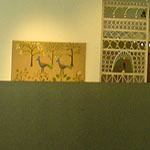Euroacademia Conferences
 Europe Inside-Out: Europe and Europeanness Exposed to Plural Observers (9th Edition) April 24 - 25, 2020
Europe Inside-Out: Europe and Europeanness Exposed to Plural Observers (9th Edition) April 24 - 25, 2020 Identities and Identifications: Politicized Uses of Collective Identities (9th Edition) June 12 - 13, 2020
Identities and Identifications: Politicized Uses of Collective Identities (9th Edition) June 12 - 13, 2020 8th Forum of Critical Studies: Asking Big Questions Again January 24 - 25, 2020
8th Forum of Critical Studies: Asking Big Questions Again January 24 - 25, 2020 Re-Inventing Eastern Europe (7th Edition) December 13 - 14, 2019
Re-Inventing Eastern Europe (7th Edition) December 13 - 14, 2019 The European Union and the Politicization of Europe (8th Edition) October 25 - 26, 2019
The European Union and the Politicization of Europe (8th Edition) October 25 - 26, 2019 Identities and Identifications: Politicized Uses of Collective Identities (8th Edition) June 28 - 29, 2019
Identities and Identifications: Politicized Uses of Collective Identities (8th Edition) June 28 - 29, 2019 The European Union and the Politicization of Europe (7th Edition) January 25 - 26, 2019
The European Union and the Politicization of Europe (7th Edition) January 25 - 26, 2019 7th Forum of Critical Studies: Asking Big Questions Again November 23 - 24, 2018
7th Forum of Critical Studies: Asking Big Questions Again November 23 - 24, 2018 Europe Inside-Out: Europe and Europeanness Exposed to Plural Observers (8th Edition) September 28 - 30, 2018
Europe Inside-Out: Europe and Europeanness Exposed to Plural Observers (8th Edition) September 28 - 30, 2018 Identities and Identifications: Politicized Uses of Collective Identities (7th Edition) June 14 - 15, 2018
Identities and Identifications: Politicized Uses of Collective Identities (7th Edition) June 14 - 15, 2018
A “Laboratory of Twilight” Versus a “Pub in Bořivojova Street”: Demystifying the Czech Myth and Decentring Central Europe in Emil Hakl’s Of Kids and Parents (O rodičích a dětech)
-
-

-
Presentation speakers
- Verita Sriratana, Comenius University in Bratislava, Slovakia
- Download presentation
Abstract:
The history of physical and socio-political violence in Central Europe, a region marred by Nazi occupation and Communist oppression, has always been a cocktail of confusion. Despite Milan Kundera’s controversial attempts to demarcate the boundaries of Central Europe, the region remains an ambiguous territory of which only shared history is multiculturalism, multilingualism and ever-shifting borders. A mélange of blatant betrayals and subtle propaganda which led to collective ethnic cleansing, culminated in pogroms and post-war repatriation policies, as well as personal brainwashing of prejudice gilded in the name of nationalism, Central European history is a distillation of dark humour and (e)strange(d) politics. In Emil Hakl’s Of Kids and Parents (O rodičích a dětech), published in 2002, translated into English by Marek Tomin and released as a film adaptation in 2008, social(ist) problem, as well as Kundera’s Czech myth, is presented “with a human face” and challenged by two familiar faces. Father and son go on a drinking odyssey around Prague and discuss the so-called “European civilisation”, family, immigrant life, post-war repatriation, fleeting memories, death and nihilism, among other random topics over pints of beer, glasses of much stronger substance and typical greasy pub food, with occasional “draining” intermissions at the men’s toilet. A “pub crawl” through the social and political upheavals of the twentieth century, of which the impact can still be felt on a personal level, Of Kids and Parents exposes the absurdities embedded within the common question in the Czech language “So what’s new?” [“Tak copak je nového?”] and within any attempt to fix and fixate on the “central/periphery” dichotomy as readers, along with the characters, become inebriated with and sobered from the (re-)constructed narratives that bind individuals together equally as “kids” of regimes and ideologies as well as “masters”, according to Vaclav Havel, of their own ever-changing fate. -
Related Presentations

The Role of NGOs in Enhancing EU Integration Aspirations in Eastern Europe: Youth Political Empowerment
- Vira Tubaltseva

















